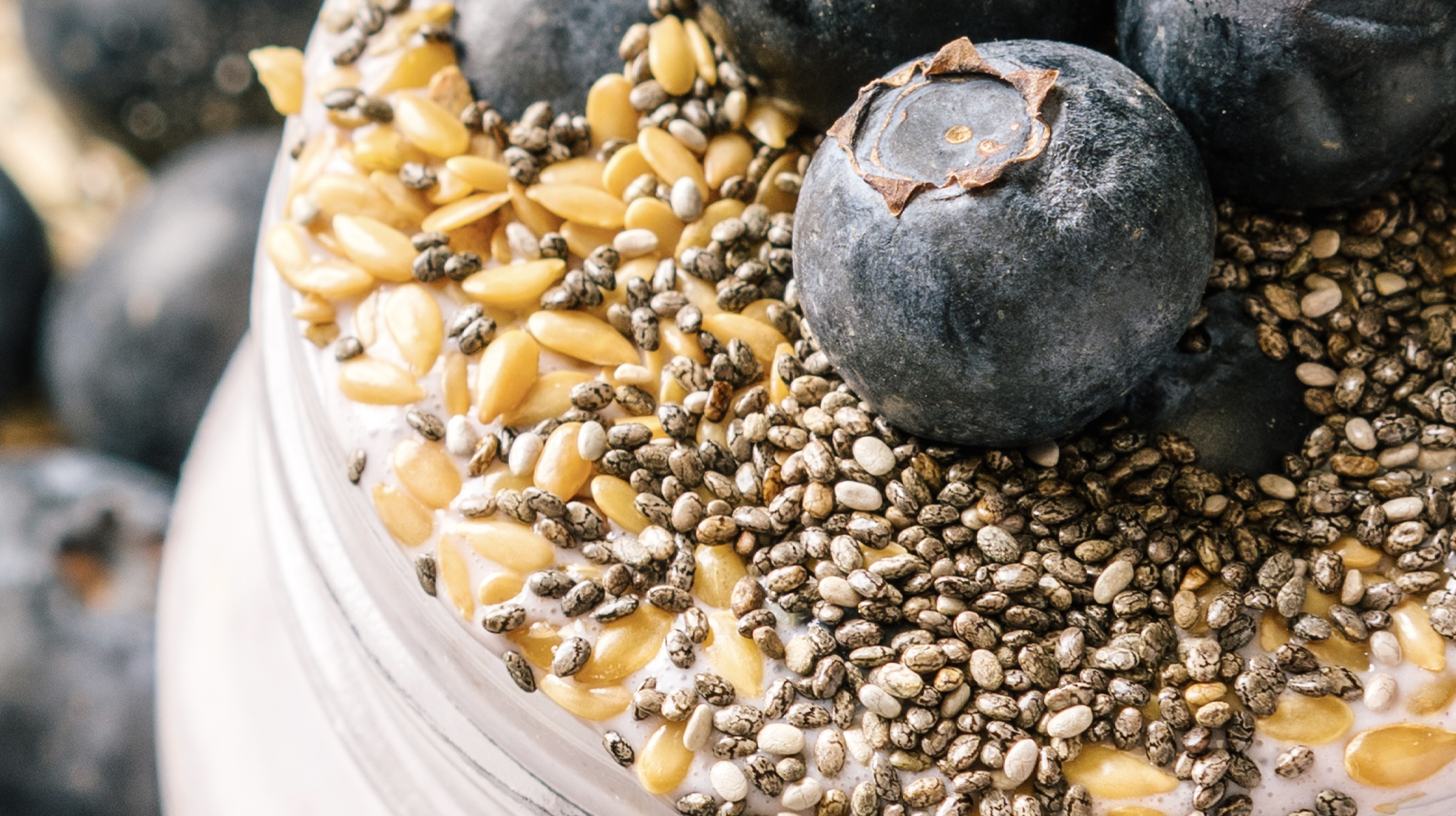Beat Stress Through Nutrition and Exercise
What is stress?
Stress is a natural response by the mind and the body to troubling situations. Unfortunately, modern life gives us lots to worry about, which means our bodies and minds experience more stress than they should.The science of stress
Stress starts when the mind identifies a threatening situation. In earlier times, the threat might’ve been a sabre-toothed tiger. Nowadays, common stress triggers include overworking, major life changes and money worries. Stress triggers cause several effects in the body, including the ‘fight-or-flight response’, which evolved in humans to help us overcome danger. The stress response also releases the stress hormone, cortisol. This hormone does some useful things like regulating your metabolism. However, high levels of cortisol can cause health problems including anxiety and diabetes. Healthy eating and exercise can help keep your cortisol levels within a healthy range.Another hormone called DHEA is thought to help manage stress. Exercise can increase the level of DHEA and bring it into a healthy balance with cortisol.Why stress is a problem
Several physical and mental problems can be triggered by stress. According to the NHS, these include:- Headaches
- Muscle tension and pain
- Stomach problems
- Difficulty with concentration
- Feeling overwhelmed
- Forgetfulness

How to beat stress
Nutrition choices to reduce stress
Nutrition can’t remove stress from your life. However, making a few changes to your diet can help your body to cope with stress better. And in some cases, it might help reduce your stress triggers too. It can be difficult to change your diet while you’re experiencing stress. For many of us, stress may cause us to overeat or undereat, and it often also leads to digestive problems. So, go easy on yourself. Make small, positive changes to your diet, at a manageable pace.Let’s go through a few easy steps you can take, starting today.
B vitamins
Many of the B vitamins play an important role in supporting the body’s capability to fight the symptoms of stress. These include vitamins B1, B2, B3, B6 and B12.Chicken breast is a great source of vitamins B6 and B12, as well as providing a mighty helping of lean protein. So, if you can, add more high-quality chicken breast to your diet. (GSN customers, you can simply add some Pre-Cooked Chicken Breasts or Pot O Gold meals with chicken to your next order!)Other good sources of stress-beating B vitamins include broccoli, eggs, liver, kale and spinach. Top tip: add more vitamin B-rich foods like broccoli, kale, eggs and chicken breast to your diet.
Omega-3 fatty acids
Omega-3 is a category of fatty acids which is found in oily fish such as herring, mackerel and sardines, and to a lesser extent in walnuts, rapeseed oil and flax seeds. It seems to help us cope better with stress, as well as helping to prevent numerous health conditions, including heart disease, cancer and eczema.Research has shown that omega-3 may reduce the level of cortisol the body produces while stressed. And at the same time, it helps you to maintain a high level of protective compounds. In other words, omega-3 helps make the body stress-resistant.Top tip: if you’re struggling to get enough omega-3 from oily fish, top up with a fish oil supplement such as cod liver oil.
Herbal supplements
Herbs have been used to treat stress since waaaaaaayyy back.Chamomile is one of the best-known herbs used to help with stress. It makes a lovely-tasting, relaxing cup of tea. Plus, it’s very mild and safe to drink. The common cooking herb rosemary has also been used traditionally to combat stress. So, it could be a smart choice to throw some rosemary sprigs into the pan with a stress-busting chicken breast. The herb ‘skullcap’, which is a member of the mint family, is sometimes used to treat chronic stress. Research suggests that skullcap stimulates a brain chemical called GABA, which acts to calm the nerves. You can buy skullcap as a herbal tea or supplement – although you might prefer to try chamomile first.Top tip: relax with a chamomile tea before bed.Choose the easy option
Preparing meals from scratch can be enjoyable and rewarding, and it often leads to delicious results. However, cooking three or four meals per day is sometimes a recipe for stress. It takes time and brainpower to prep and cook meals, and the hours you spend can put pressure on the rest of your day, leading to productivity-related stress. You should absolutely carry on cooking up a storm in the kitchen – but don’t feel guilty about using easier options at busy times throughout the week. If you’re unsure of which easy options to eat, check out our Pot O Gold range of healthy ready meals, which is designed especially to take the pressure off during those hectic moments. Top tip: when you’re busy, replace high-effort cooking with healthy, easy ready meals.
Hydration
Staying hydrated is one of the best (and easiest) things you can do to reduce stress.When the body is dehydrated, it doesn’t work as it should. This often leads to stress. Everyone requires a different fluid intake to achieve the right level of hydration. One of the key factors is body mass.Here’s a simple equation to work out how much water you’re likely to need per day:Your weight (kg) x 0.033 = Litres per day Example:82 kg x 0.033 = 2.706 litres Bear in mind that this equation is designed for people with an average lifestyle. If you do lots of exercise, you will probably need extra hydration. One simple way to check your hydration levels is to keep an eye on the colour of your pee. If it is usually quite clear, that probably means you’re taking on plenty of fluids. If it’s very yellow, it’s likely that you’re dehydrated. Other signs of dehydration include dry mouth, tiredness – and obviously, thirst! The best way to hydrate is by drinking water. However, you can add healthy nutrients by also drinking herbal teas and juices (in moderation). Top tip: set alarms to remind yourself to hydrate throughout the day.Movement
There’s lots of evidence to suggest that exercise – and movement in general – can reduce the harmful effects of stress. Exercise has been shown to reduce the production of the stress hormone, cortisol. It also increases the production of feel-good endorphins, while providing a welcome break from the stress triggers in our lives. On a more basic level, exercise can help you to clear your mind and manage your emotions. There’s nothing like that mentally refreshed feeling after a run, swim or session at the gym.
Which types of exercise reduce stress?
Most types of exercise have the potential to reduce stress. What matters most is that you should choose sports or activities that you enjoy. For Team GSN, that could be long-distance cycling for Dan, yoga for Lucy or an ironman triathlon for Neal. It’s all about doing what you love. In general, having fun is one of the best possible ways to destress. Happy times playing sports or working out will help you to maintain a positive mental attitude, build social bonds and take your mind off the stressful things in your life.
Activating mind and body
To maximise the stress-relieving benefits of exercise, try adding some mentally stimulating activities into the mix. Yoga is one of the best forms of exercise for engaging both body and mind. It encourages you to relax mentally and physically, and this can reduce stress and anxiety. There are many yoga routines designed specifically to reduce stress and promote relaxation. Another mentally engaging sport is bouldering (a type of climbing, where you climb to relatively low heights without using ropes). While you exercise your body, your brain is busy figuring out the movements needed to get you up the wall. A nice side benefit is that bouldering gyms are usually pretty relaxed and friendly places to work out.Team sports, such as football, netball, cricket and rugby, can also provide a mental challenge – keeping your mind focused on the game.Competitive sport and stress
Competitive sport has a complicated relationship with stress. You get a lot of joy out of the sport itself, but the expectations placed upon athletes can cause a lot of mental pressure.If you’re a competitive sportsperson, it’s important to have a plan for dealing with stress. For example, GSN’s fave football club, Lewes F.C. employs a full-time welfare officer who helps their players to deal with competitive pressure.You should be aiming to find that sweet spot between excelling as an athlete, and managing your mental health.The complete picture
For the best chance to beat stress, it’s a good idea to think about your life as a whole and identify any areas where you can make a positive change. As well as diet and exercise, think about things like:- Sleep. Are you getting enough good-quality sleep? Simple changes like avoiding using your phone or laptop at bedtime can make a big difference.
- Self-care. Are you doing enough to look after your mind and body? This can mean different things to different people – from cutting down on alcohol to upgrading your personal hygiene routine.
- Relaxation. Life is busy, but it’s crucial to find time to relax. You could try reading, listening to music, using the sauna or steam room at your gym, swimming gently, meditating or doing breathing exercises.








